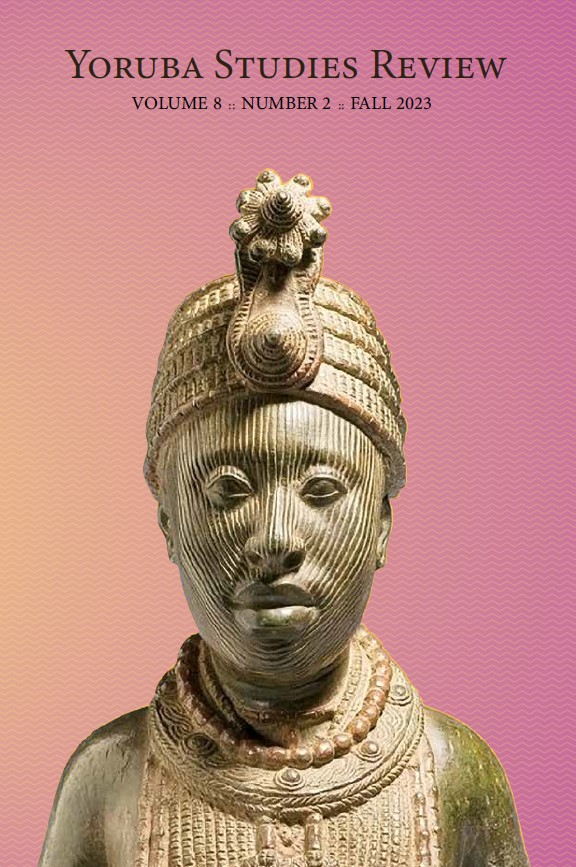Abstract
Figurative expressions, particularly metaphors, play a pivotal role in shaping our interpretation and comprehension of human discourse within a cultural system. In Yoruba culture, the metaphoric use of animal forms an indispensable component of daily life, manifesting in diverse forms, including proverbs, music, oral literature etc. To this end, previous studies have primarily concentrated on the stylistic use of animal-related metaphors in Yoruba language. This paper diverges by using a conceptual/cognitive approach to explore how specific animal terms and their associated concepts are metaphorically employed to represent various facets of human experiences, behaviors, and attributes. Data collection involved a one-week purposive observation and audio-recording of random discussions among Yoruba speakers in Ibadan, consultation with Yoruba language teachers and elderly family members. Audio-recordings were subsequently transcribed to extract all animal-related metaphoric expressions. These metaphors were then analyzed, organized and categorized according to Lakoff and Johnson’s Idealized Cultural or Cognitive Metaphor (ICM) framework. The study demonstrates the existence of conceptual connections between animal attributes and human traits in Yoruba culture as conveyed in twenty metaphorical expressions analyzed. The study also reveals that through the conceptual process of “mapping” across domains, animals in the source domain are used to depict various human experiences, behaviors, both semantically positive and derogatory to humans in the target domain through metaphorical means. This paper concludes that both domestic and non-domestic animals are employed to communicate intricate concepts and ideas via succinct and vivid imagery based on the sociocultural values, beliefs, and general worldview of the Yoruba people.

This work is licensed under a Creative Commons Attribution-NonCommercial 4.0 International License.
Copyright (c) 2023 Oluwadamilare Adisa
